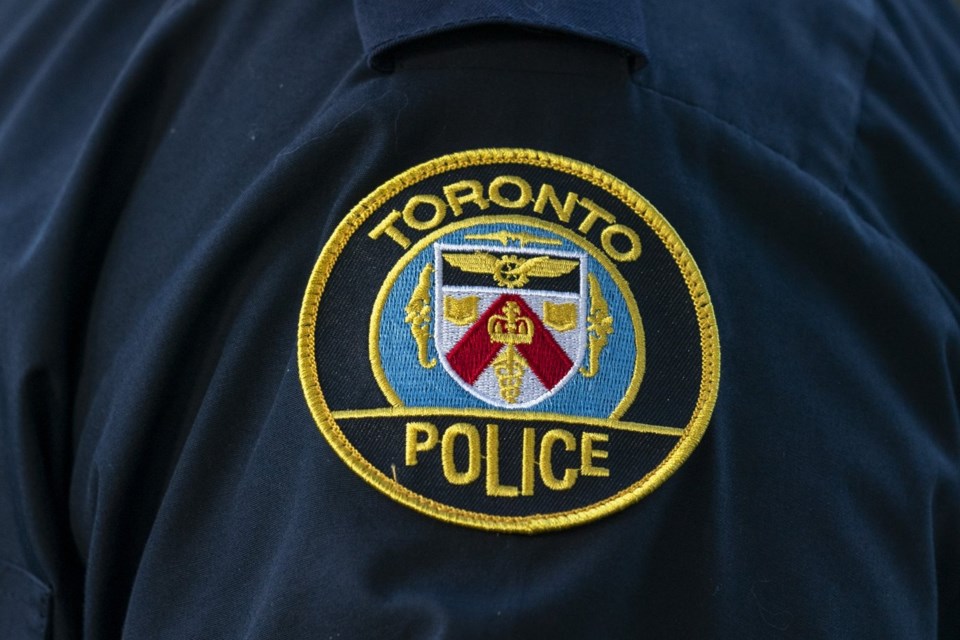TORONTO — Speed was considered a factor in a fiery overnight crash in downtown Toronto that killed four people and injured one woman, officials said Thursday, underlining the challenges firefighters face when batting electric-vehicle battery fires.
A Tesla car was travelling at a "high rate of speed" when it lost control, slammed into a guard rail and then caught fire along Lake Shore Boulevard east of Cherry Street shortly after midnight, Toronto police Deputy Insp. Phillip Sinclair said Thursday.
"There is some evidence to suggest that speed was a factor," he said.
Sinclair described the crash as "heartbreaking." All four people who were killed — three men and one woman — were in their 20s and 30s, he said.
The surviving woman was pulled from the car by a motorist who stopped to help, he said. The woman, in her 20s, was sent to hospital with non-life-threatening injuries.
"Thanks very much to that bystander. We have been speaking to them, and obviously they are also deeply affected by this incident — a very horrific scene for that bystander to step in," Sinclair told a press conference Thursday morning.
Deputy fire chief Jim Jessop said the crash underlined the challenge firefighters can face when trying to put out electric-vehicle battery fires.
"The intensity of the fire is directly linked to the battery cells in the Tesla," said Jessop, speaking alongside Sinclair.
"But I want to be very clear: we have all attended collisions where we've had horrible car fires as well that are gasoline powered."
One of the major risks in electric-vehicle fires, he said, is when the battery gets into an uncontrollable self-heating chain reaction, or what's called thermal runaway. The battery can sometimes reignite up to weeks later, he said.
Firefighters at the scene put the car's battery cell in a dumpster and filled it with sand, then moved it from the scene for safe disposal, he said.
"We don't want to speculate on the intensity of the fire until the investigation is complete, but certainly it did cause extra care and concern in transporting the vehicle and the battery cell that had been ejected (from the vehicle)," Jessop said.
Talk of battery fire risks comes as the city's transit agency considers a possible ban on e-bikes and e-scooters from its vehicles. A staff report going before the Toronto Transit Commission's board says the risks are particularly associated with lithium-ion batteries in uncertified or misused devices.
EV FireSafe, a group backed by the Australian government, says its research findings suggest the chances of an electric vehicle battery catching fire are very low, and perhaps even lower than fire risks linked to gas-powered vehicles, though it notes comparable data is limited.
Jessop said Toronto Fire is being "very proactive" in preparing for a future where lithium-ion batteries, the type found in everything from cellphones to cars, are even more common.
He said the service has a working group to help inform its response to public messaging about battery fires and tactics for safe disposal by firefighters.
"It's something that you know we're going to have to deal with and continue to deal with as this technology expands ... and it's something that, you know, we're going to continue to work on," he said.
Lake Shore Boulevard, the major arterial road along the city's waterfront, was closed in both directions between the Don Valley parkway and Cherry Street for several hours ahead of the morning rush hour. One lane reopened in each direction later in the morning.
This report by The Canadian Press was first published Oct. 24, 2024.
Jordan Omstead, The Canadian Press



